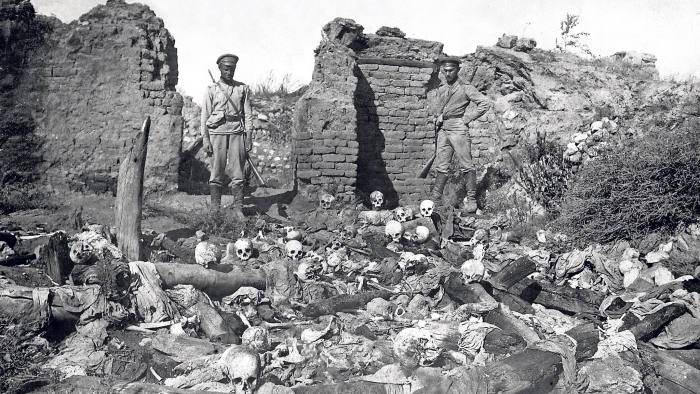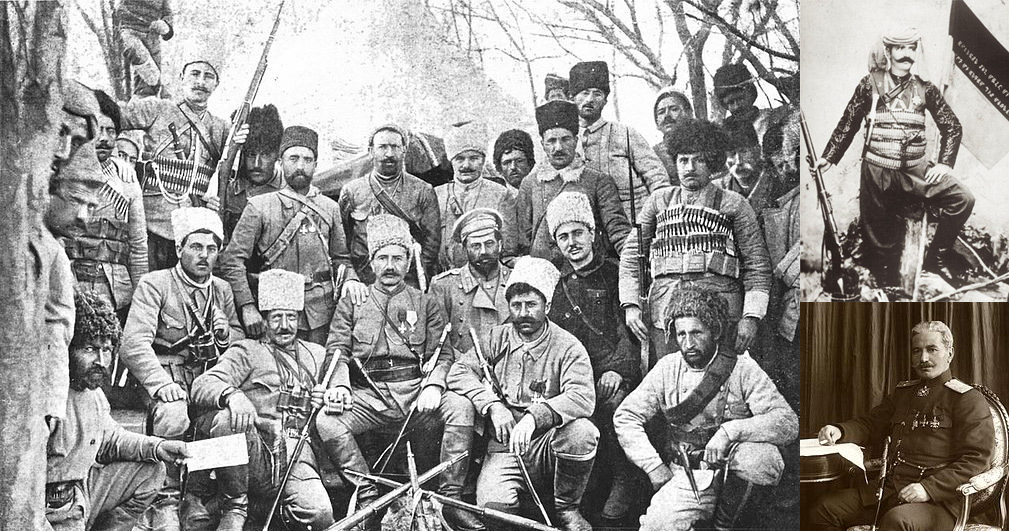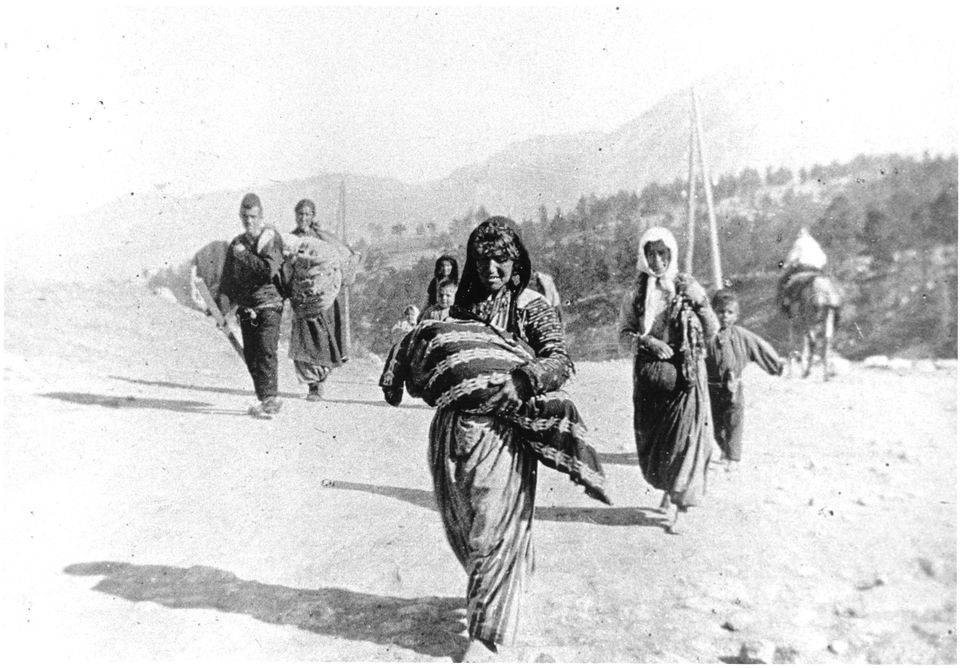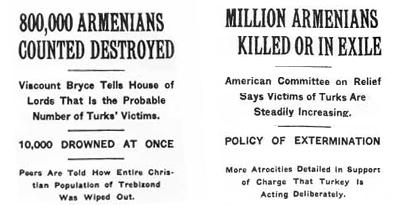Is Wilson Prepared to Act?
Help Just Too Far Away
Special to The Great War Project.
(30 May) More trouble determining the fate of the Ottoman Empire.
Many at the Paris Peace talks – especially British Prime Minister David Lloyd George and members of the British delegation – are looking to President Wilson to turn the former peoples of the empire into self-governing states.
So observes historian Margaret Macmillan.

The fate of the Armenians.
Lloyd George is secretly hoping Wilson at the very least will take Armenia under his wing.
But Macmillan rightly observes, “the United States had never declared war on the Ottoman Empire, which put it in a tricky position when it came to determining the empire’s fate.” The only one of Wilson’s Fourteen Points that dealt with it was ambiguous.
“The Turkish portions of the present Ottoman Empire should be assured a secure sovereignty,” Macmillan writes, “but the other nationalities now under Turkish rule should be assured an undoubted security of life and an absolutely unmolested opportunity of autonomous development.”
Who should have autonomous development? The Arabs? The Armenians? The Kurds? The scattered Greek communities?

Armenian fighters
The Armenians, Macmillan writes, brought one of the saddest histories to the conference. The Armenians have lived under foreign occupation for centuries, until 1918 when as a result of the war and the fate of Russia, they proclaimed an independent Armenian state – the republic of Armenia on what had been Russian territory.
But as a result of the war, “the Armenian lands were divided up among Russia itself, Ottoman Turkey, and Persia.”
The Armenians had become Russian, Turkish, or Persian, “but as ideas of nationalism and self-determination swept eastward, the vision of a reborn Armenian nation took shape.”
“It was not a coherent vision,” Macmillan reports,
“Christian, secular, conservative, radical, pro-Turkish or pro-Russian, there was no agreement as to what Armenia might be, but it was increasingly powerful.”
“Unfortunately,” she observes, “Armenian nationalism was not the only nationalism growing in that part of the world.”
At the Paris Peace Conference, “the horrors of what the Turks had done to the Armenians were still fresh, and the world had not yet grown used to attempts to exterminate peoples.”

Armenian deportation.
The killing begins in the 1890s, but by 1915, the second year of the war, it had become clear that the killing amounted to an attempt to exterminate the Armenians from Ottoman lands dominated by the Turks.
“Ottoman troops and local Kurds, themselves awakening as a nation, had rampaged through Armenian villages. Initially, the Turks drove out Armenian villagers, forcing them into desert lands. Many came to believe that the Turks are exterminating the Armenian population from Turkey.
More than a million Armenians lost their lives. Western opinion was appalled.
President Wilson was very pro-Armenian. The US Secretary of State, Robert Lansing called it “one of the blackest days in the history of this war.”
But what were the Americans, and indeed the British as well, prepared to do for the Armenians? Armenia was far from the peace table. Are the Allies prepared to move troops into Armenian territory? Help was far away, but Armenia’s enemies were close at hand.
The US and Britain issued “fine sentiments,” but according to Macmillan, “they amounted to little in the end.”
